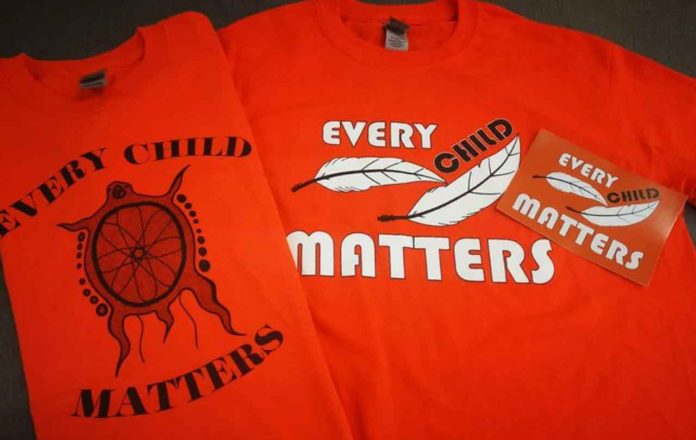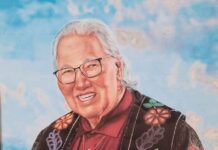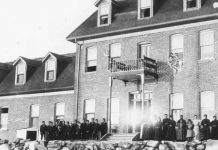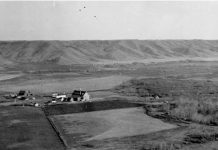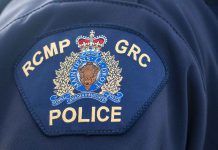A National Residential School Crisis Line is available to provide support for former Residential School students. Emotional and crisis referral services are available by calling the 24-hour national crisis line: 1-866-925-4419.
The Hope for Wellness Line is available to all Indigenous peoples and provides immediate, toll-free telephone and on-line support and crisis intervention 24 hours a day, seven days a week and is available in English, French and, upon request, Cree, Ojibway and Inuktitut. Trained counsellors are available by phone at 1-855-242-3310 or by online chat on their website.
OTTAWA / THUNDER BAY – The identification of unmarked graves and burial sites of Indigenous children at former residential schools has caused us all to reflect on Canada’s history and the truth of this troubling past. While Canada has taken steps to address the past and the ongoing legacy of intergenerational trauma, there is more work to be done in partnership with First Nations, Inuit and Métis leaders and communities to ensure justice for Survivors, families and future generations of Indigenous children.
David Lametti, Minister of Justice and Attorney General of Canada, Marc Miller, Minister of Crown-Indigenous Relations, Kúkpi7 Rosanne Casimir of the Tk’emlúps te Secwépemc First Nation, and Chief Cadmus Delorme of the Cowessess First Nation announced the appointment of Kimberly Murray as Independent Special Interlocutor for Missing Children and Unmarked Graves and Burial Sites associated with Indian Residential Schools.
“I am honoured to have been entrusted with this important responsibility of being the Special Interlocutor. I am committed to supporting the work of Survivors and Indigenous communities to protect, locate, identify, repatriate, and commemorate the children who died while being forced to attend Indian Residential Schools. I pledge to do this work using my heart and my mind in a way that honours the memories of the children who never made it home,” states Murray.
This appointment is a critical step towards respectful commemoration and justice for First Nations, Inuit and Métis in Canada.
Kimberly Murray was on the Expert’s Panel with the Thunder Bay Police Services Board. Her work on that board will end as she takes on the new responsibilities. “Kimberly was a powerful voice and helped guide many discussions around the challenges facing the Thunder Bay Police Service,” said Chair Alok Mukherjee.
Work is now underway to identify candidates and stakeholders with a background in Indigenous justice to join and/or contribute to the panel.
“Having an Indigenous justice lens to the work we do is critical to ensuring our recommendations support reconciliation and building trust with the communities that live and visit Thunder Bay,” added Mukherjee.
Starting June 14, 2022, Ms. Murray will work closely and collaboratively with Indigenous leaders, communities, Survivors, families and experts to identify needed measures to recommend a new federal legal framework to ensure the respectful and culturally appropriate treatment and protection of unmarked graves and burial sites of children at former residential schools.
In her capacity as Special Interlocutor, Ms. Murray will engage with First Nations, Inuit and Métis governments, representative organizations, communities, Survivors and families to discuss issues of concern around the identification, preservation, and protection of unmarked graves and burial sites, including the potential repatriation of remains. The Special Interlocutor will guide this process, facilitate listening and action by engaging in conversations in ways that are culturally informed, trauma-informed, appropriate and respectful, and based on Indigenous customs, decision and consensus-building practices. Her mandate will also extend to facilitating dialogue with provinces, territories, local communities, as well as other relevant institutions, such as various churches.
This work will be carried out independently and impartially, in a non-partisan and transparent manner. The Special Interlocutor will deliver an interim report after the first year describing her work and progress to date. A final report will be delivered at the end of two years. Both interim and final reports will be delivered concurrently to the Minister of Justice and to First Nations, Métis and Inuit Survivors, families, leaders and communities, and to the public.
The appointment and the work of the Special Interlocutor will be supported by a proposed investment in Budget 2022 of $10.4 million over two years.
“The identification of unmarked graves and burial sites of Indigenous children at residential schools has caused us all to reflect on Canada’s history and the truth of this troubling past. I am honoured to announce the appointment of Kimberly Murray as Special Interlocutor. This work will be an important trust-building exercise that will help communities move forward, find healing for families and Survivors, and push us all toward a more just framework for honouring the memory of Indigenous children who never returned home from residential schools,” said David Lametti, P.C., Q.C., M.P. Minister of Justice and Attorney General of Canada.
“As Indigenous communities continue leading the difficult work of finding their missing children, the appointment of the Independent Special Interlocutor will support Survivors, their families, and communities in addressing their specific needs in commemorating the children who never returned home from residential schools. The Government of Canada remains committed to supporting First Nations, Inuit, and Métis as they uncover the truth and work towards healing,” added Marc Miller the Minister of Crown-Indigenous Relations.
Minister Patty Hajdu of Indigenous Services stated, “As we continue to come to terms with the shameful and tragic legacy of residential schools that so many Indigenous people have suffered, we must ensure that our responses are Indigenous-led, Survivor-centric and culturally sensitive. The appointment of a Special Interlocutor responds to the many calls for action that asked for this important independent role. We will continue to listen to Indigenous Peoples as they share their painful truths and we’ll be there to support them on their journey of healing.”

